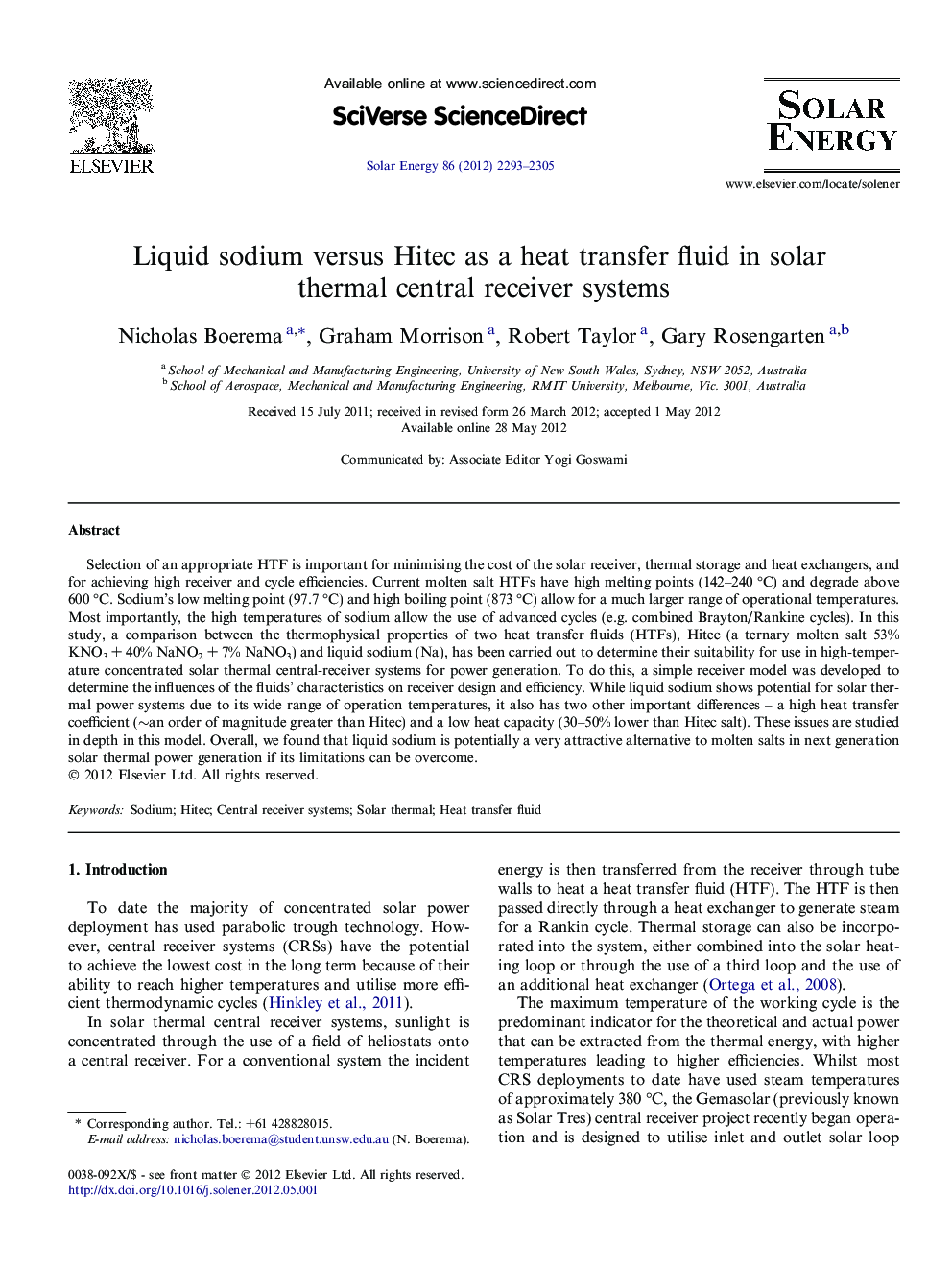| Article ID | Journal | Published Year | Pages | File Type |
|---|---|---|---|---|
| 1550882 | Solar Energy | 2012 | 13 Pages |
Selection of an appropriate HTF is important for minimising the cost of the solar receiver, thermal storage and heat exchangers, and for achieving high receiver and cycle efficiencies. Current molten salt HTFs have high melting points (142–240 °C) and degrade above 600 °C. Sodium’s low melting point (97.7 °C) and high boiling point (873 °C) allow for a much larger range of operational temperatures. Most importantly, the high temperatures of sodium allow the use of advanced cycles (e.g. combined Brayton/Rankine cycles). In this study, a comparison between the thermophysical properties of two heat transfer fluids (HTFs), Hitec (a ternary molten salt 53% KNO3 + 40% NaNO2 + 7% NaNO3) and liquid sodium (Na), has been carried out to determine their suitability for use in high-temperature concentrated solar thermal central-receiver systems for power generation. To do this, a simple receiver model was developed to determine the influences of the fluids’ characteristics on receiver design and efficiency. While liquid sodium shows potential for solar thermal power systems due to its wide range of operation temperatures, it also has two other important differences – a high heat transfer coefficient (∼an order of magnitude greater than Hitec) and a low heat capacity (30–50% lower than Hitec salt). These issues are studied in depth in this model. Overall, we found that liquid sodium is potentially a very attractive alternative to molten salts in next generation solar thermal power generation if its limitations can be overcome.
► We compare two heat transfer fluids for use in central receiver systems. ► The heat transfer coefficient of liquid sodium was much greater than for Hitec. ► Receiver efficiencies were found to be similar. ► The efficiency using liquid sodium is much less dependent on flow conditions. ► Hitec has a higher surface temperature, which may limit the concentration ratio.
